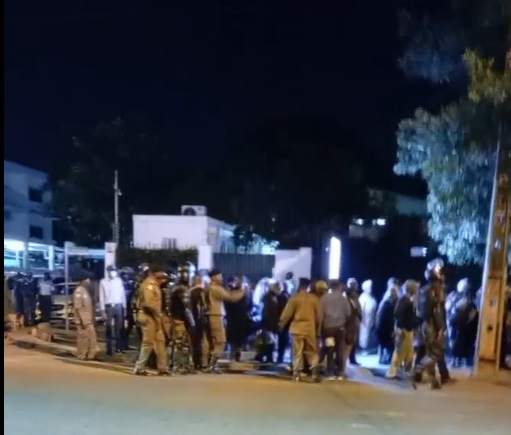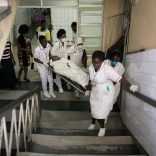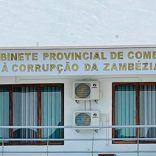Mozambique: MISA condemns attack against Zambezia journalist
Mozambique: Media Council wants police to explain action at Tuesday protest

Screen grab: Adriano Nuvunga /Facebook
Mozambique’s Higher Mass Media Council on Wednesday asked for clarification of the detention of an activist and the seizure of material from Soico Televisão (STV) while it was covering a protest on Tuesday night in Maputo, condemning the action.
‘The Higher Mass Media Council [CSCS] repudiates these acts, which constitute a flagrant violation of the press law that determines the free access and permanence of journalists in public places where it becomes necessary to exercise their profession,’ reads a statement from the body, sent to the media.
At issue is a protest that began on 28 May, with hundreds of former officers from Mozambique’s defence and security forces camping outside the United Nations to demand supposed compensation resulting from the General Peace Agreement, which ended the country’s civil war.
According to CSCS, the SOICO group’s news directorate confirmed that its reporting equipment was seized while covering the protest, on the same day that activist Sheila Wilson, from the Centre for Democracy and Human Rights (CDD), was allegedly forcibly taken away by Mozambican police officers while broadcasting the protest live.
A video circulating on social media, taken by the activist herself, shows the moment she was taken away by officers from the Republic of Mozambique Police (PRM) while she was shouting for help and saying that the police were attacking her.
The CDD, a non-governmental organisation, wants to sue the Mozambican state for the alleged kidnapping of the activist by police officers, who has since been released on Wednesday.
In the document sent to the media, the CSCS recalled that attacks on journalists and the retention or destruction of their work material are illegal and constitute a disrespect for press freedom and the right to information, expressing ‘great concern’ about what happened.
‘The Higher Mass Media Council calls on the authorities to quickly clarify this reprehensible incident to the public,’ the document concludes.
The Mozambican National Resistance (Renamo) also called for an investigation into the police action on Tuesday night, considering it ‘repugnant and reprehensible’.
‘We hope that the responsible authorities will investigate this incident and take measures to ensure that similar situations do not occur again,’ Renamo said in a note published yesterday on its Facebook page.
The police intervention on Tuesday also led to hundreds of protesting officials ‘fleeing in a stampede’, the group’s leader told Lusa shortly after the police action.
‘I can’t confirm if any arrests were made. There were around 200 people who had to flee in a stampede. The police used force, seven vans full of all kinds of well-armed police arrived,’ described Adolfo Samuel, the protest spokesman and former senior state security officer.
The General Peace Agreement put an end to the 16-year war, which pitted the government army, of which the plaintiffs were part, against the Renamo guerrillas, who have now disarmed and have been reintegrating their guerrillas involved in the war.
The conflict, which left thousands dead, ended with the signing of the agreement on 4 October 1992 in Rome between the then President, Joaquim Chissano, and Renamo’s historic leader, Afonso Dhlakama, who died in May 2018.
The General Peace Agreement was violated in 2013 by armed clashes between the two parties over disputes related to the general elections.
In 2014, the two parties signed another agreement to cease military hostilities, which was violated again until the third understanding in August 2019, the Peace and National Reconciliation Agreement, which resulted in the disarmament of the armed wing of Mozambique’s main opposition party.~












Leave a Reply
Be the First to Comment!
You must be logged in to post a comment.
You must be logged in to post a comment.